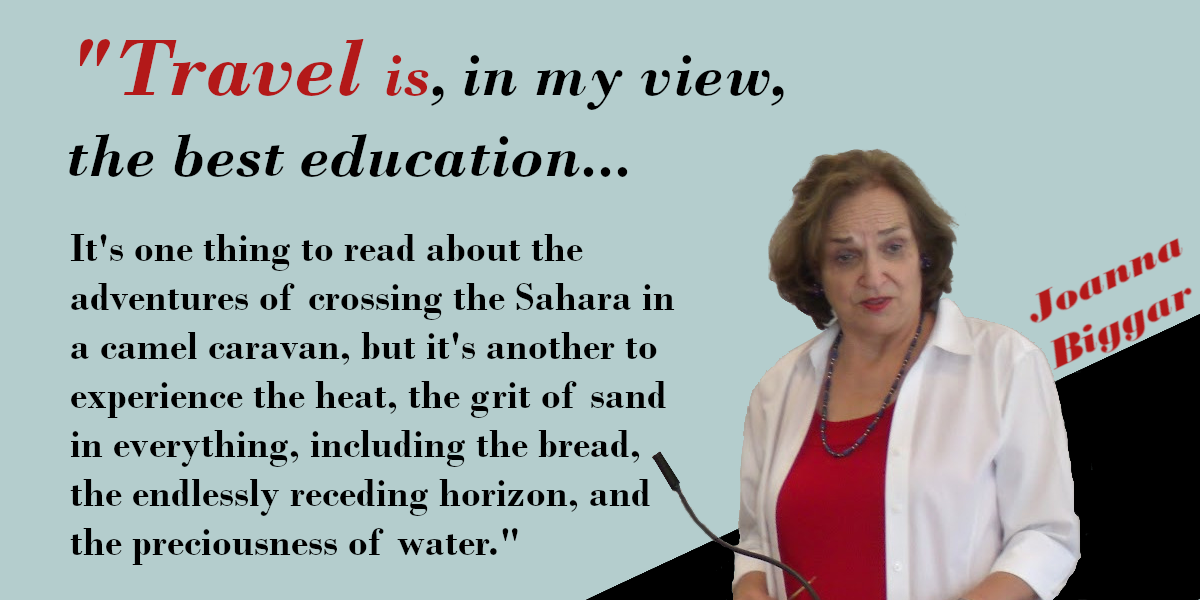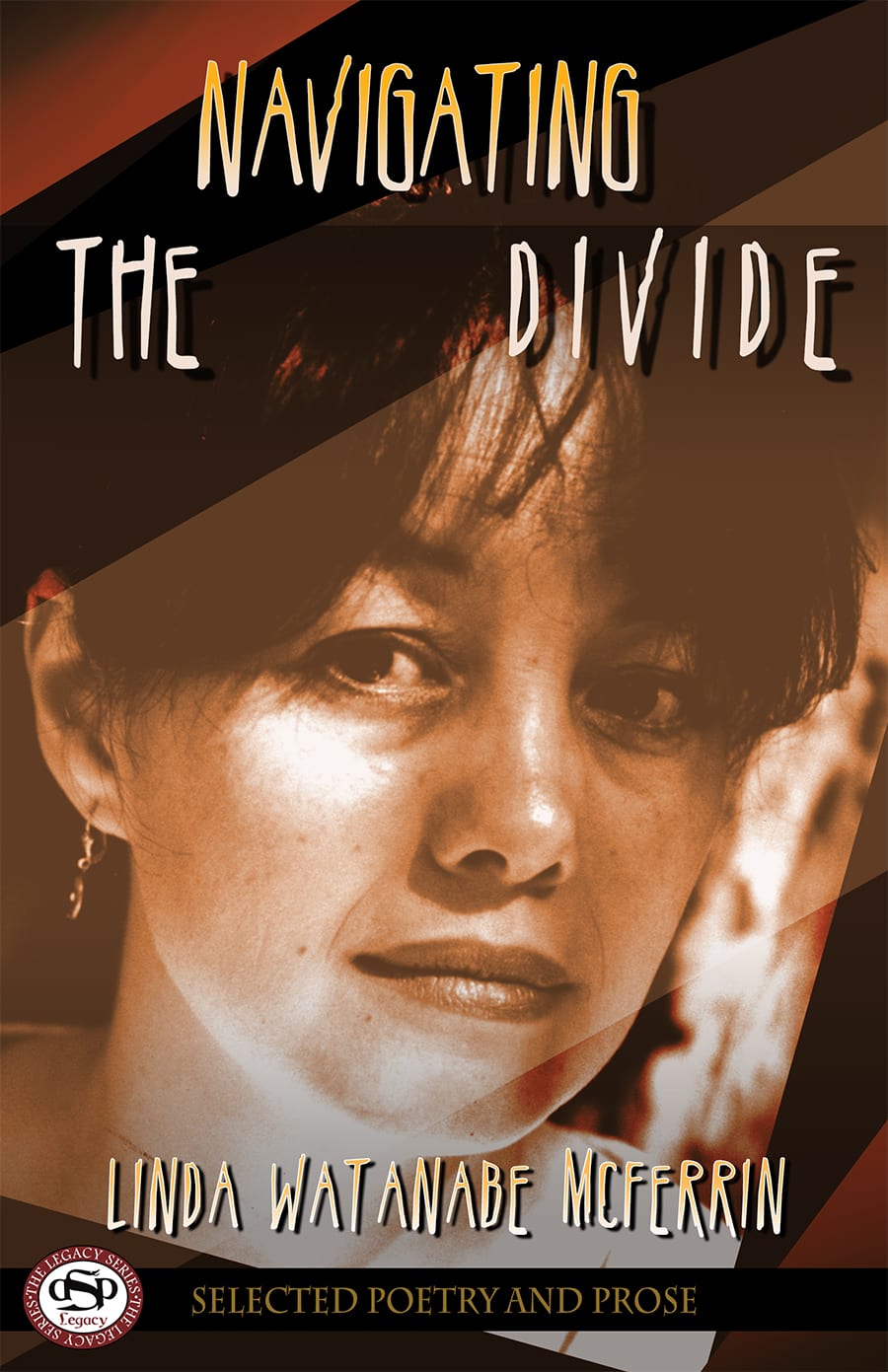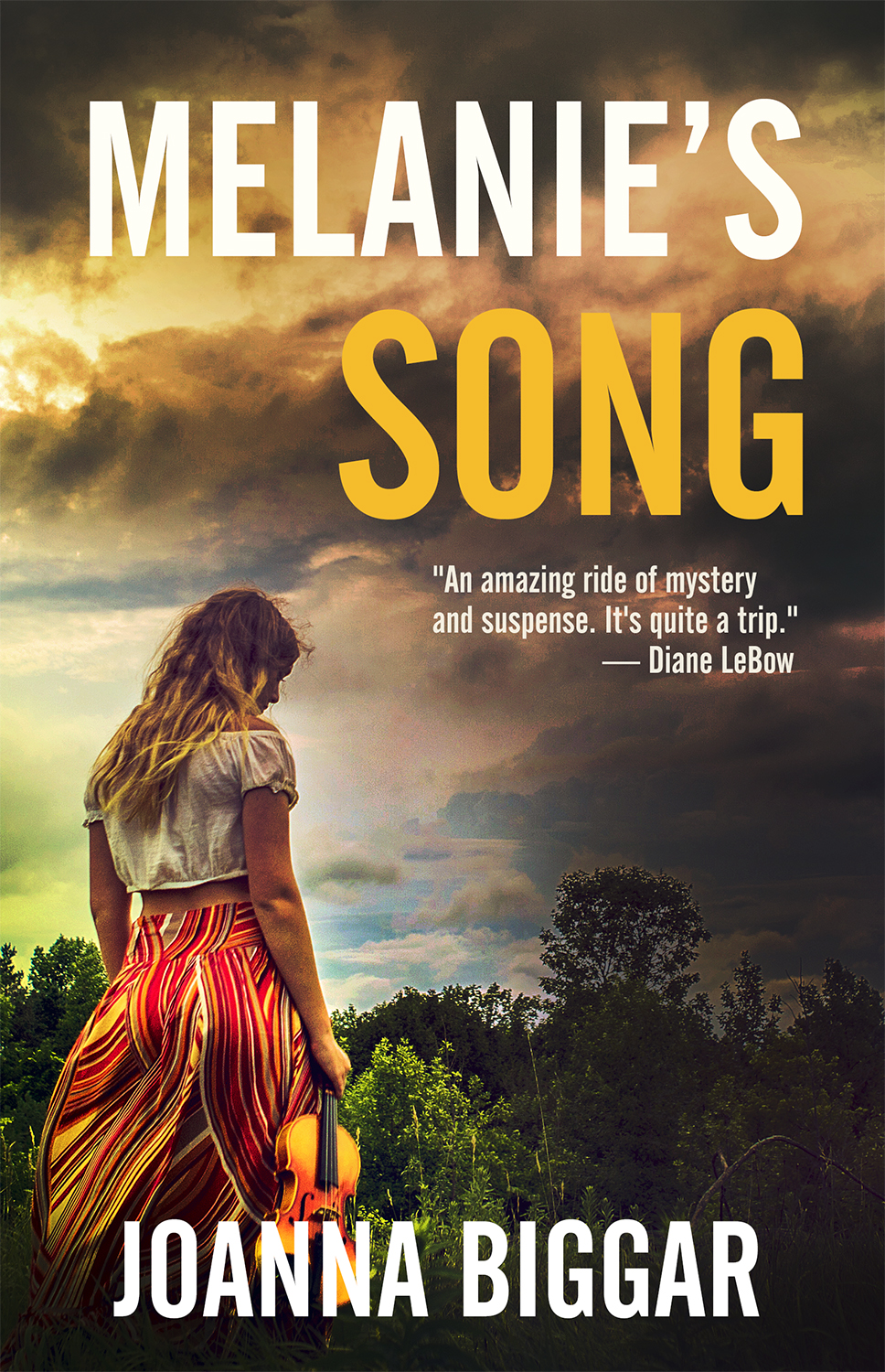The Best of Linda and Joanna's Recent Reddit Q&A
The writing team talked travel and travel-writing on their debut Reddit AMA last week

Recently writers and travel partners Linda Watanabe McFerrin and Joanna Biggar participated in a Reddit "Ask Me Anything" wherein they fielded questions from the users of r/travel, the largest travel forum on website reddit.com.
Here are the best answers from the travel-writing duo:
Have you ever been afraid that you might be imprisoned yourself when traveling?
Joanna Biggar: Funny you should ask! Once when trying to escape from Goa on a bend of the river in the Sahel with my two travel companions, in order to avoid being extorted by the local warlord, called the Fat Man, we made our way into the desert to meet the French truck drivers with whom we were traveling to Niamy, in Niger. Only a few kilometers out, we were stopped by an armed gendarme who said we must return to the town until our permission from the Fat Man was granted. And soon we found ourselves in the confines of the notorious jail, where beautiful Tuareg nomads were being beaten. We were told we would be detained for some time. Happily, however, siesta hour settled in with the high heat of afternoon, and we found the guards succumbed, too. We escaped again.
What is the most difficult or challenging place you've ever visited to write about? And was it worth it?
Linda Watanabe McFerrin: Mombasa, but the problem was not with the place; it was with me. I found it hard to connect there, although I was sometimes mobbed by touts. I was exhausted too. I was writing a story about the train from Nairobi to Mombasa, the Lunatic Express, but it was after I'd been traveling all over Kenya. All I wanted to do was sleep. Still, it was worth it. Mombasa, it turns out is an amazing city. I just wish I'd been up for it, been able to get over myself. I think if we have problems with anything we can usually find the provocation within.
Joanna Biggar: A trip I made in 1983 to China to research a book about a Chinese physician who was also a big behind-the-scenes player in the political scene was certainly challenging--as well as rewarding. My doctor, Chien Pien Li, had moved to the State just before China "fell" to Communism, but he had been a childhood friend of Mao's, and worked as a liaison between the Americans and Chinese during and after WWII. His leaving caused many problems for his family during the Cultural Revolution; and his returning to visit Mao a few years before my trip, caused a sensation. To write his story, I very much wanted to visit his childhood home as well as Mao;s, deep in the mountains of Hunan, which was at that time off-limits to outsiders and caused huge pushbacks from Communist officials at every turn. At one point a relative of his suggested I go on a clandestine voyage with the secret police. Most answers to my queries were stonewalled, but one day a little green car with curtains arrived in the university at Changsha, and I was whisked away. Eventually on the twisty mountain road I was joined by officials, army escorts and the Secretary of State for Hunan. In those small villages and towns, I became the story, an object of acute curiosity to those who had never seen the likes of me, and crowded around me everywhere, including hundreds pushing their noses against the window while I ate alone in a huge dining hall.
What is it that motivates you to travel?
Joanna Biggar: Travel is, in my view, the best education. There is a great place for arm-chair travel, where everyone can voyage to the farthest places of the world in one's mind, but nothing is like the experience of place itself. It's one thing to read about the adventures of crossing the Sahara in a camel caravan, but it's another to experience the heat, the grit of sand in everything, including the bread, the endlessly receding horizon, and the preciousness of water. Going there not only enhances the experience of reading, but is the great teacher for stretching oneself.
How do I (or anyone) pursue a career in travel writing? I feel like all the possible topics. for travel books have already been written, updating/rewriting seems to be the only option
Joanna Biggar: AS for all travel writing having been written, I think this is something like Alexander the Great weeping because there are no more worlds to conquer. Yes, more and more places are known, even into the depths of the ocean and the frontiers of space. But with every era, new discoveries in science, archeology, history give the traveler new lenses through which to see with new eyes. Think of new discoveries in DNA that makes us rethink Neanderthals in Europe, or powerful empires in the pre-Columbian New World. The key is to have a point of view in traveling and find a way to express it, and a forum to share it in. To start of course, you can find a publication interested in buying your piece, or to start a blog, or find an online community to share with. then see what unfolds.
How does one ACTUALLY pursue travel-writing? Like where do I start except for traveling? Where do I submit my work?
Linda Watanabe McFerrin: It is getting harder and harder to make a living as a travel writer unless you already have current connections with various publications That said, the terrain is constantly changing, and in some ways there has never been a better time to find a place for your stories. There are so many online opportunities. Many magazines also accept stories for pages online, and there are travel magazines that are entirely online. One of my favorites is Hidden Compass. Check this one out. HC pays for stories. If you are fortunate enough to find editors who love your work, write for them again and again. It is, like so many things, all about the relationships. It does take time ... like all good things, so best be doing it for love ... love of travel, love of writing.
How does one go about seeking out a travel partner?
Linda Watanabe McFerrin: Sometimes you have to meet those travelers on the road. Usually those who are on the same travel track as you are like traveling in the same way. As with many things, you do it and the doors open, the people follow, so just committing to a trip, a place and going—sometimes on your own—is the secret. Keep an eye out for people at home with the same sensibilities. Travelers tend to hang together, share stories. You can find some excellent travel sites online.
Over the past few decades travel has become accessible to more of the population. People are exposed to cultures around the world and gain a broader understanding of how our world works. On the flip side, with more people traveling we see problems of over-tourism. Popular sites around the world are being damaged by the sheer number of visitors. What are your takes on efforts to solve this problem?
Joanna Biggar: Great and complex question about the hazards of "over traveling." I believe it's a huge problem and I certainly don't have all the answers. But I do think there are going to have to be some restrictions in order to not repeat the folly of the Vietnam War's absurd saying "We need to destroy the village to save it." If we regard the world's best destinations as precious resources to be preserved, we would perhaps stop destroying them. As to another aspect of travel, the damage created by jet fuel can and should be mitigated by better technology. In the meantime, responsible travelers can contribute to their own carbon emissions by buying very inexpensive offsets from "Good Traveler" online. Another thing to do is to self-regulate. I personally have chosen not to visit the Galapagos, for example, because I'm convinced that travel there is very destructive.
What rules do you follow when you write about travel? Are they different than other topics you write about?
Linda Watanabe McFerrin: I write as a journalist ... that is, I do my research so the parts that are reportage are fact-driven. I generally use a subjective lens, however, and much of what I write about reflects my position on a subject, although I make it clear that it is my position. I also try not to include information that will put my subjects and sources at risk in some way.
Joanna Biggar: I think the crucial thing is to do enough research to know what the norms of the culture you are visiting are--and learn more when you get there--then find ways to be respectful. Obviously, this does not mean being so restrictive that you can't experience what you set out to do. For example, as a Western woman traveling in a Muslim country, there can be many hazards. I remember traveling on an old bucket of a boat down the Niger River in Mali and being horrified by young European cavorting on board in bikinis, as if they were on a cruise to the Greek islands. But for me, and my traveling companions (two other women), we found that by covering ourselves in long skirts and being purposeful with scarves, we had pretty free access to the towns and ports we were floating through.
Packing is always a problem for me. I usually travel to places where I need to dress up sometimes, and I almost always bring too many shoes. Any advice?
Linda Watanabe McFerrin: I generally dress in all black and accessorize. More room for shoes that way.
ps: You can always tuck things into those shoes before packing. It actually is good for the shoes.
Joanna Biggar: In this respect, I'm a contrarian. I know all received wisdom says "travel light." I remember reading, with horror, an admonition to take one washable dress, accessories, and disposable paper underwear. To which I respond NO! I say pack that extra outfit, the cool shoes, the shawl, the whatever that you can break out to enhance a special place, or moment, and make it even more special.

Navigating the Divide is a career-spanning, multi-genre collection from the award-winning indie literature legend, Linda Watanabe McFerrin. In poetry, essays, and fiction that are often profoundly personal and astoundingly surreal, this world traveler and literary explorer busts walls, erects bridges, and ambiguates genre. This multi-faceted collection sets out to attempt its namesake, to “navigate the divide” – between spiritual and physical, between thought and desire, between individual and collective.
Navigating the Divide is the third volume in ASP’s Legacy Series. This series is devoted to career-spanning collections from writers who meet the following three criteria: The majority of their books have been published by independent presses; they are active in more than one literary genre; and they are consistent and influential champions of the work of other writers, whether through publishing, reviewing, teaching, mentoring, or some combination of these.
Set in the era of Woodstock and Watergate, Melanie’s Song centers on a young woman’s mysterious disappearance, and on her friend’s determined search for her.
Melanie, who fled her marriage to a straight-laced classical musician in order to hitch-hike to Woodstock and San Francisco, was last seen at a commune in the California hills. Rumors abound: that she took up with a Black radical; that she had his child; that she and her lover, armed, ran a bank heist a la Patty Hearst; that she developed a mystical gift for spiritual healing; that she died in a possible accidental, possibly staged commune fire.
Trying to sift truth from invention pulls her friend, the young reporter, J.J., into the underbelly of the sexual and social revolutions of the 60s and early 70s, where she encounters corrupt cops, paranoid hippies, activists, mystics, drug-runners,and most astonishingly, Melanie’s own parents. Risking her job, her connections, her life, J.J. follows Melanie’s trail, determined to find out what happened to her once-compliant friend now turned, it seems, into a rebel angel.
